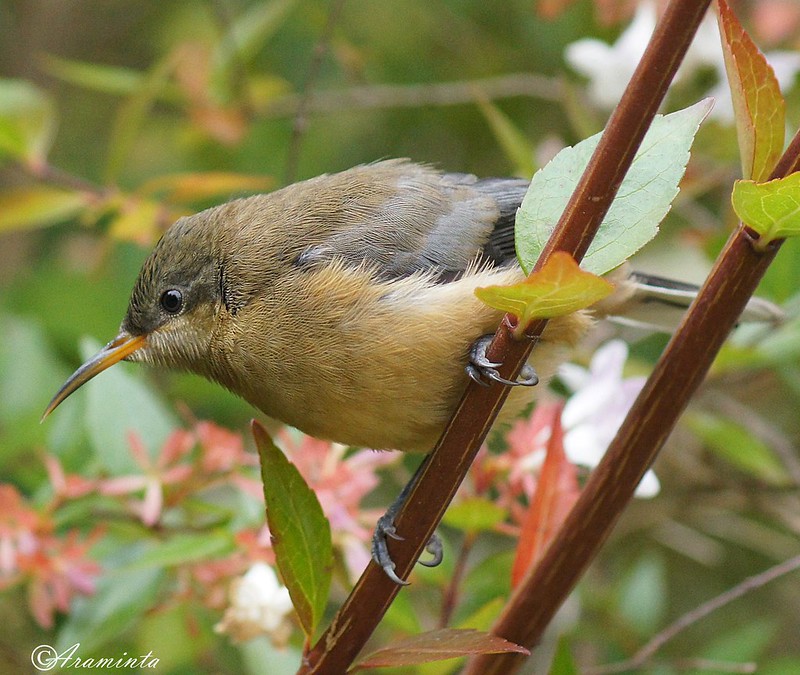Do you remember , at the beginning of the breeding season, the Wrens had one brood of 4 young, after that there were no other nests, one male changed back into non-breeding colours. I then asked the question if the birds knew something I didn’t? I think the answer becomes more obvious every day.
In my garden, and I can only speak for my garden, all the shrubs have less flowers, the ground is hard and dry because there hasn’t been any rain for weeks. Last year there were countless New Holland Honeyeaters and their young fighting over an abundance of flowers in the Callistemon. Today I counted them on one hand, and didn’t see any young. Hardly any Eastern Spinebills, only one juvenile.
That tells me: Birds are much smarter than humans, they know in advance weather it is worthwhile putting in the effort to raise young, if there isn’t enough to eat for them. (most humans are not that smart, they keep breeding , even in times they can’t provide for their offspring)


 I don’t expect any more nesting, unless it will rain a lot and more flowers will appear.
I don’t expect any more nesting, unless it will rain a lot and more flowers will appear.
What’s it like at your place?
One of two New Holland Honeyeaters, and one juvenile Eastern Spinebill I saw this morning.










Just one more of a Baby

M-L
Gosh, they are beautiful photo's! And I so agree with you. I remember a time when it was too hot at Christmas for cooked dinners. These days, it's cooler at Christmas, and more heated over the February month. Animals are smarter than we give them credit for!
We do tend to get the honey-eaters, but only when there are flowers. The wattle tree in our front yard had already flowered before Christmas - yet the wattle tree over the road didn't flower until January! It's very strange indeed! The only honey-eater that's mainly here all year round is the Red Wattlebird - but then, the noisy minor sticks around too lol!
Take Care,
TrudyC
Regards
TrudyC
aka RedBrowedFinch
Great pic's ML , and it's not hard to be smarter than a human.............
Neil
Gorgeous photos as usual Araminta. Our kookaburras, blue faced honey eaters and cuckoo shrike all have young even though it's dry, dry, dry so I don't know what the answer is.
One of the key features for breeding is food, rbuddy. I assume, then, there is sufficient food in your dry locality to justify breeding by these species.
In the nthn country of central vic up to Xmas we had breeding pairs of all sorts - Grey Shrike THrush, NEw Holland, Superb wren, REd Browed Finches, maggies, red rumps and Eastern Rosella's. Then the first hot spell struck and activity dropped off, I think many of these birds adjusted to food shortages by only feeding one young, it often happens that way each year. When pruning the hedge last week I found a Superb wren nest full of 4 chicks - all shrivelled up, but we still have 5 of these families around our property so the mature ones are managing OK. I suspect the nest held a second brood for this season by that productive pair. Well the rain has just arrived now, so maybe things will get back to normal - fingers crossed.